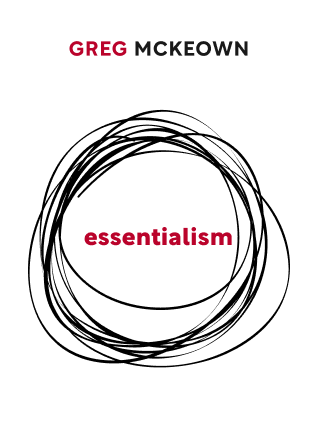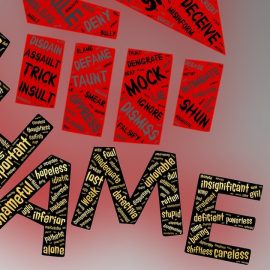

This article is an excerpt from the Shortform book guide to "Essentialism" by Greg McKeown. Shortform has the world's best summaries and analyses of books you should be reading.
Like this article? Sign up for a free trial here .
What is the meaning of “less but better” and who coined the phrase? How does it apply to lifestyle?
The phrase “less but better” denotes a design philosophy put forward by German industrial designer Dieter Rams. Rams firmly believed that the best design involved as little design as possible. Inspired by Rams, Greg McKeown applied this principle to the broader context of living one’s life.
Keep reading to learn about the principle “less but better”, as it applies to lifestyle.
Less But Better: The Way of the Essentialist
We feel constantly pressed for time. We’re trying to do too much, yet when someone makes a request we say yes without thinking, in order to please them or avoid resentment. We feel that we must do it all.
As a result, we’re stretched too thin, we’re going in too many directions, and we’re making only minuscule forward progress on our many tasks and projects. We’re busy but not necessarily productive. We feel overworked but underutilized, because we’re spending much of our time on things that matter little.
As Greg McKeown, author of Essentialism: The Disciplined Pursuit of Less, puts it, many of us are majoring in minor activities. The way out of this trap is to live by the principle “less but better”. Dieter Rams, a retired academic and industrial designer, coined the phrase and wrote a book in 1994 with that title. McKeown focuses his book on how to put it into practice, changing your thinking and your life.
To start with, we’re rewarded for saying yes to everything (nonproductive behavior) and punished for saying no (productive behavior). Successful people are caught in a conundrum. It develops like this:
- Successful people have a clear purpose — they know what they’re trying to accomplish — and therefore they succeed at the tasks and projects they take on.
- Because of their success, they end up taking on more and more. They become the go-to person who can always be counted on to help and their bosses and others present them with increased options and opportunities.
- Increased options and opportunities, which demand more time and energy, lead to scattershot efforts — these successful people get spread too thin.
- They’re distracted from doing their most important work at an optimum level. In effect, their success has undermined the clarity of purpose that led to their success in the first place.
Thus, pursuing success, if done in an indiscriminate way, can end in failure. Pursuing too many goals can distract us from focusing on important things.
There are several reasons we’re prone to failing this way.
There are too many options. Because of our ever-expanding choices, we can’t distinguish the most important ones. More people having more choices represents a major change in the human condition — one for which our society isn’t prepared. We’re unable to manage the overwhelming number of choices by sorting the important from the trivial. We suffer “decision fatigue,” which results in poor choices.
Social pressure keeps increasing. In addition to having a plethora of choices, we’re also under increasing pressure to make certain choices. Social media enable others to constantly weigh in on what we’re doing. We have both information and opinion overload.
We believe we can have and do everything. The idea of “having it all” has been around for a while and is pervasive in advertising, job descriptions with huge lists of required skills and experience, and university applications requiring myriad extracurricular activities. The idea that we can and should have it all is creating more stress as our options have multiplied and we keep stuffing more into our schedules.Companies contribute to the problem, espousing a work/life balance while expecting their employees to be available by phone and email 24/7.
In staff meetings, managers list a dozen “top priorities,” setting employees up for frustration and failure. Originally, in the 1400s, there was no plural form of the word “priority.” “Priority” meant the first or prior thing. We pluralized the word in the 1900s, insisting we could have many “first” things. Businesses and individuals regularly try to operate on this belief, but when many things are priorities, nothing is.
When we try to do everything, we make tradeoffs we’d never make as an intentional strategy. When we don’t actively choose what to focus on, bosses, colleagues, friends, and others choose for us — and their agendas end up controlling our lives. Soon, what’s meaningful and important to us falls by the wayside.
A Way Forward
At the end of life, many people express the wish that they’d had the courage to live on their own terms rather than trying so hard to meet the expectations of others.
You don’t need to suffer this fate yourself. You can be true to yourself by living by the principle “less but better”: focusing on the things important to you and saying no to nonessentials.
Nonessentials include not only typical time wasters, such as spending time on social media, but also positive and appealing things. It takes determination and practice, but you can resist business and social pressures to be all things to all people by learning to focus on what’s essential and eliminating everything else.
Living Essentially
You can think of essentialism as something you do occasionally, or as something you are. It can be something you add to your overcommitted life or it can be a different lifestyle, a simpler way of doing everything.
Essentialism is at the heart of many spiritual traditions. For example, Gandhi eliminated everything in his life to focus on a higher purpose: the liberation of the oppressed. Buddha found his mission after leaving a life of wealth and privilege. Quakers also live by the principle of “less but better”, focusing on the essential.
More recently, successful people including Steve Jobs and Warren Buffett have lived by an essentialist philosophy “less but better”. You must choose whether to commit to making essentialism your lifestyle.

———End of Preview———
Like what you just read? Read the rest of the world's best book summary and analysis of Greg McKeown's "Essentialism" at Shortform .
Here's what you'll find in our full Essentialism summary :
- How to do less but to do it better
- Why you need to be disciplined in your pursuit of less
- How you can learn to say no






